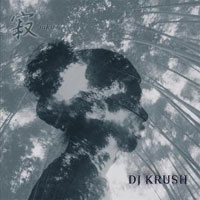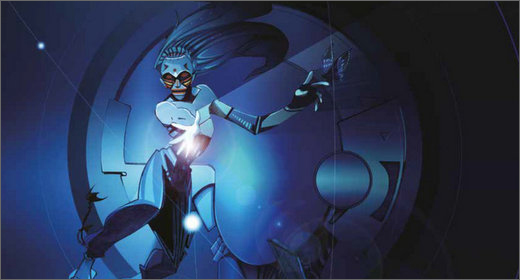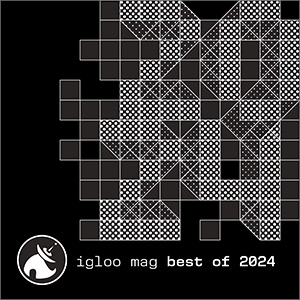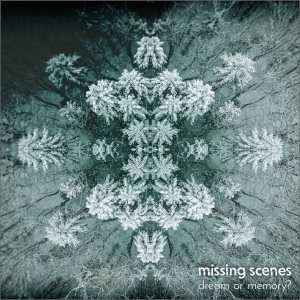 “The Beginning,” the fourth track on DJ Krush’s latest record, Jaku, sums up the instrumental hip-hop impresario’s new focus: a spine-bending fusion of beats and traditional Japanese instrumentation. While Krush has conquered the rest of the
“The Beginning,” the fourth track on DJ Krush’s latest record, Jaku, sums up the instrumental hip-hop impresario’s new focus: a spine-bending fusion of beats and traditional Japanese instrumentation. While Krush has conquered the rest of the
world with his sublime blend of beats and turntable action, he’s been a bit remiss in his own cultural heritage, an oversight which he stunningly corrects with Jaku. His recent records have had a focus on the inclusion of guest vocalists, and Jaku strips most of that away and dissolves into a fog-laden wilderness of deep beats and atmospheric instrumentation. “The Beginning,” for example, rolls with drums — all restrained Taiko drummer style — while a lone shakuhachi flute sample dips and climbs across the rippling percussive mist. Krush creates an atmosphere of movement and poignancy that could easily be soundtrack music to a scene from Akira Kurosawa’s Ran.
“The Transition” is a two-minute, well, transitional piece where a small group of koto players is shoved around the stage by a tightly wound drum kit. The melody isn’t longer than eight bars, and the eddies and shifts in the rhythm section cause ripples in the sound from the stringed instruments. “Stormy Cloud” is a reflection on the time-lapse movement of the cloud cover against the white peak of Mt. Fuji where strings, a trilling saxophone, and acoustic piano supplied by jazz pianist Ken Shima chart the perpetual progression of the weather across the mountain top. If George Winston ever wanted to be hip and get out of the New Age dinner music genre, he would go to his producer and play this track. “This,” he would say, “This is how I will make myself relevant to a new generation.”
“Still Island,” with shakuhachi flute player Shuuzan Morita, is mood music for the early morning approach to a weather-shrouded Monster Island. The clouds shred slowly to reveal a stunning landscape of lush valleys and verdant forests, a picturesque paradise that sings with its untrammeled beauty. But underneath there is an undercurrent of danger, a slithering sound of something moving in the water or skulking within the shadows of the trees. Your heart flutters in your chest, a breathless tap-tap of light snares and brushed hi-hat.
“Univearth” pits Krush against Tetsuro Naito of Kodo, applying the sparse and very Japanese style of wind instruments and percussion against Krush’s studio-driven beats. The result is an otherworldly soundtrack firmly grounded in the 21st century’s penchant for electronically-minded rhythm. On “Decks-athron,” Krush takes to the wheels of steel in a turntable duel with UK-based DJ Tatsuki, while maintaining his trademark instrumental hip-hop vibe. Even his overtly hip-hop efforts (“Nosferatu” with Mr. Lif and “Kill Switch” with AESOP ROCK) are still very much DJ Krush affairs.
Jaku — a Japanese word meaning “peace and calm” — is DJ Krush’s mediation on the Zen practice of considering koans — the impossible mental puzzles that are handed down from master to student; in Jaku, Krush is meditating on the spiritual philosophy of his homeland and his own musical heritage. While he has been permanently branded by the hip-hop of the seminal film, Wild Style, DJ Krush seeks to merge the influences of the world into his work. He’s a child of Japan who has gone beyond the shadow of Mt. Fuji.
In a world where beats are becoming crazier and faster with every record released, it is good that some aren’t concerned with keeping pace with the caffeine-addled youngsters. Krush’s beats haven’t evolved much from the instrumental trip-hop phase which he hit so solidly on Meiso and Milight (back in 1995 and 1997, respectively), but what has improved is his ability to synthesize a disparate source of other instrumentation and artistic input. Jaku is a mature record that captures Krush at the top of his game and is a high point in an already highly successful and influential career.
Jaku is out now on Sony Japan/Red Ink.
- Red Ink/Sony Website
- DJ Krush






















